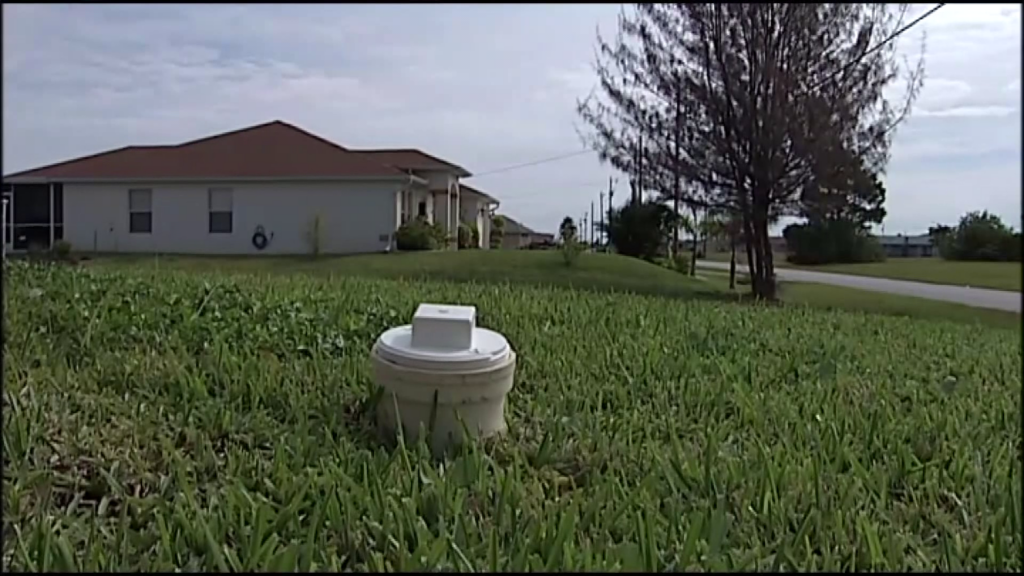FORT MYERS
From fecal bacteria to blue-green algae to red tide, degrading water quality is a prevalent issue in Southwest Florida. Recent research links many of Lee County’s water quality woes to its septic systems.
A third of all homes in Florida use septic tanks. Estimates in Lee County alone range from 100,000 to 200,000. It’s difficult to pinpoint because many are abandoned or built over, but researchers say figuring it out is vital to our water quality.
Our lifestyle depends on water for drinking, recreation, and the economy. Our natural treasures—Southwest Floruida’s beaches, wildlife, mangroves, and plant life—all rely on it.
But its current state is unreliable.
“We have a diversity of harmful algal blooms in the county that are worsening,” said Brian Lapointe, a researcher at Florida Atlantic University’s Harbor Branch Oceanographic Institute. “And, of course, the million-dollar question is where are the nutrients coming from that are feeding these various blooms?”
Five years ago, Lee County contracted FAU to answer that million-dollar question. The resultant study showed septic systems are a major contributor to nutrient pollution, particularly nitrogen, in the Caloosahatchee River.
“In the wet season, many of these septic systems, they’re underwater; they can’t function when they’re underwater, ” Lapointe said. “I think that’s important for everyone to know: Your almost-raw waste is going directly into the water.”
That almost-raw waste carries with it harmful nutrients that stimulate algae. How these tanks are supposed to work: You have your septic system, your drain field, and then dry soil.
“As the effluent percolates through that dry soil, it’s cleaned; so, if there’s no dry soil, that doesn’t happen,” said Rachel Brewton, an author and research scientist at FAU’s Harbor Branch. “You just end up with untreated human waste going into the groundwater, which then could go into the surface water.”
Brewton says an estimated 2 1/2 million septic tanks in Florida—there are 40,000 known and 60,000 suspected septic systems in North Fort Myers alone—aren’t the only things contributing excess nutrients into our waterways, but the link is there.
“It’s not necessarily that North Fort Myers, in particular, is fueling the red tide, but it suggests that throughout the Lee County study area, human waste nitrogen is probably really contributing to these blooms,” Brewton said. “You know, everyone wants to decrease them, and so decreasing this human nitrogen loading should really help with this issue.”
Brewton says that with the rate at which water levels are increasing in Florida, it will be a much worse problem in 20 years.
According to Lapointe, Southwest Florida’s building boom is also implicated in septic systems’ negative effect on our water quality. More people means more human waste to deal with. While the septic systems used to do so are out of sight, the problems they cause are right in front of our eyes.
“The big problem, according to our data and where we are working, is big development without adequate infrastructure to deal with the waste,” Lapointe said. “In Florida, because of inadequate planning for the future and rapid population growth, we now have urbanized areas, cities that are using still using septic systems.”
Lapointe found there are too many too close together, and, with our high water table, they don’t do the job properly in Lee County. He says the tanks sit in groundwater, and human waste is never properly cleaned through dry soil. Instead, it runs off into our waterways, leading to fecal bacteria and algae-fueling nitrogen in our water.
“If you look at how many new septic systems are being permitted in Florida, it’s a scary thought,” Lapointe said.
“This isn’t an issue, necessarily, that maintaining your septic system can fix because if your septic system is sitting in the groundwater, you can’t, you know… you can pump out your tank, but it’s not going to fix the problem in there,” Brewton said.
“People want to continue growth in Florida for the economic benefits that come with positive growth,” Lapointe said. “But, like I say, that growth has to be matched by adequate infrastructure, or those chickens are going to come home to roost.”
In other words, poor planning at the development stage means we’ll all have to pay the price.
WINK NEWS

